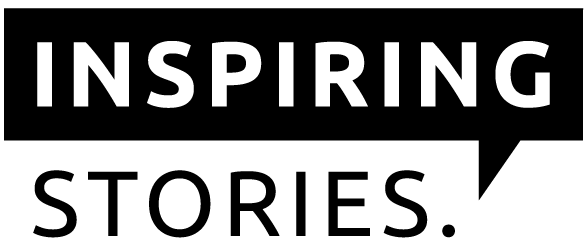Sarah Tuck – Wellbeing Impact Award 2020
On 18th September, 2020, Sarah Tuck became the winner of the Impact Award for Wellbeing. Launched in 2019 by the team at Inspiring Stories, The Impact Awards celebrates young New Zealanders making a difference with $25,000 awarded across five categories – climate, enterprise, inclusion, global and wellbeing.
Sarah is the co-founder of CoLiberate, a social enterprise that is working to tackle New Zealand’s mental health crisis. Their solution is built around a bold vision – that every New Zealander has a trusted someone who can notice when they are not doing okay, and has the skills to help them connect with the right support. At Inspiring Stories – the organisation behind The Impact Awards, we’ve had the opportunity to be part of the CoLiberate journey since the beginning, when they first developed the idea as part of an accelerator programme for young entrepreneurs that we ran in 2016.
CoLiberate have trained more than 1,000+ people in Mental Health First Aid & Response - On average, trainees are having 3.4 supportive conversations per week. That’s estimated to be 300,000 supportive conversations that are improving people's lives every single year.
Sarah and the team are working to launch their first Wellbeing Gym in central Wellington in early 2021. Sarah plans to use the $5,000 to take their Mental Health First Aid training on the road around Aotearoa, increasing access for Kiwis outside of the main centres – first stop, Southland!
We caught up with Sarah to find out more!
Q: How have you funded or resourced your idea(s) for impact, and what advice would you have for other people looking to fund or resource theirs?
A: Coming from a background in the arts, we would spend a lot of time applying for funding and not getting it. We decided to ensure that CoLiberate always had a sustainable business model that wasn’t relying on funding or grants to keep it afloat. We self-funded a lot of our start up costs, volunteered our time for 2 years before we started paying ourselves a living wage and relied a lot on value exchanges - exchanging services instead of money.
We also have had a lot of people donate their time and volunteer to further our impact (Thank you). The benefit about an arts background is that you become super resourceful - you accept the volunteer help and become very crafty in the ways to make your project thrive. Our first mental health gym ran on the smell of an oily rag. We took out a personal bank loan of $2,000 which bought plants and a couch off Trade Me to create a vibe and partnered with Urban Dream Brokerage who organised us a free space in the middle of wellington city. We were allowed to occupy this space while it was in between leases - we expected to prototype the mental heath gym idea over a maximum of 5 weeks and we ended up having the space for 18months which equates to over $95,000 in rent costs.
We were truly conservative with money spend - and that was the necessary choice to ensure that our business was fully validated in the market, making an impact and had a sustainable growth pathway before taking on any big loans for growth. 5 years later and we have a strong B2B and B2C business model that pays for everything with a bit extra to reinvest back into furthering our impact. We accepted one bond loan for the development of our services and have received less than 10k in grants.
Q: How did you go about getting people onboard with your idea and build a team?
A: We shared our story and vision a lot in our first year - to anyone willing to listen. The mental health gym was a big help in getting people to experience the change we wanted to see which created a whole lot of advocates! Some of whom are now employees! From that it really has reinforced that people remember how you make them feel - get people to feel the impact you want to make - then the conversation is easy.
CoLiberate’s first employees, from the left Tamara Buckland, Rosie Sievers, George Johnston
Q: If someone is keen to make an impact but doesn’t know where or how to start – what advice do you have?
A: The impact I wanted to make started small. it came from seeing pain, shame and hurt negatively impact some people very close to me - it took a huge toll on their mental health and ability to show up. It made me uncomfortable witnessing their hurt - and I just wanted to do whatever I could for my friends to feel hope and to feel good and to feel worthy of living their best life. I still feel emotion rising in me when I think about why I do what I do - that’s how I know i’m on the right track.
Making an impact starts with one person - that’s your first milestone! Celebrate when you get there! Always stop the mahi to celebrate and then leverage off it until your next milestone.
Making impact also takes time. Be patient and remember that tiny wins like sending an email to someone that inspires you is big in this business - especially when starting out. To this day, my scariest moments are sending emails to someone I admire - asking for a coffee and hoping for the best.




